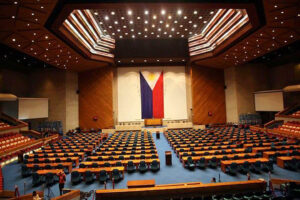A BILL seeking to bar local government units (LGUs) from interfering with National Government (NG) projects has been filed at the House of Representatives.
The proposed National Government Projects Implementation Act is expected to accelerate the rollout of NG infrastructure, health, education, and other projects.
“There have been instances where local government units have obstructed or delayed the implementation of (NG) projects, causing unnecessary delays and additional costs,” Zamboanga City Rep. Khymer Adan T. Olaso said in the bill’s explanatory note.
House Bill No. 8300 only allows LGU intervention when it is specifically requested by the agency in charge of implementing the project.
If signed into law, interfering LGU officials could be liable for administrative, civil, or criminal penalties. Other details of the bill are expected to be fleshed out in the implementing rules and regulations, to be drafted by the Department of the Interior and Local Government.
The bill may need to be harmonized with Section 2(c) of Republic Act No. 7160 or the Local Government Code, which requires “all national agencies and offices to conduct periodic consultations with appropriate local government units, nongovernmental and people’s organizations, and other concerned sectors of the community before any project or program is implemented in their respective jurisdictions.”
Section 25(b) of the Code also states that “national agencies and offices with project implementation functions shall coordinate with one another and with the local government units concerned in the discharge of these functions.”
The Code also provides for the participation of LGUs both in the planning and implementation of NG projects.
Mr. Olaso said the measure is expected to “ensure that National Government agencies and offices can carry out their mandates without unnecessary interference.”
The Senate is currently discussing a separate bill seeking to institutionalize the automatic income classification of LGUs to help determine their capacity to implement projects and identify gaps that the NG can assist on. The House passed its counterpart measure in March. — Beatriz Marie D. Cruz

